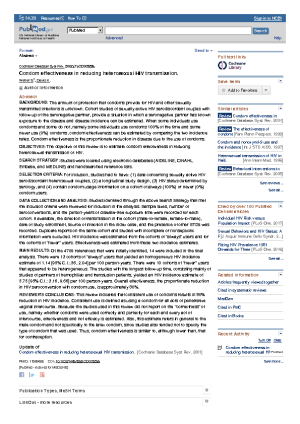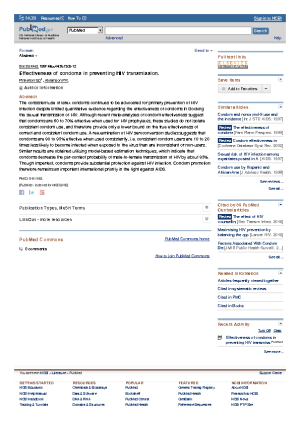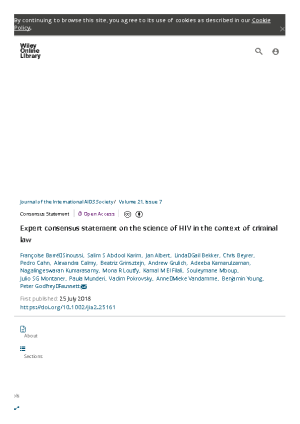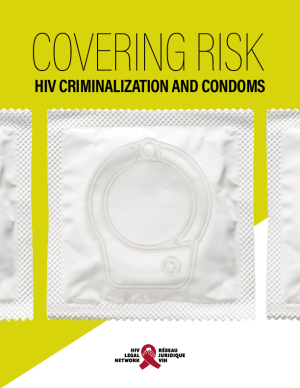Review of 14 rigorous studies to re-estimate condom effectiveness in reducing heterosexual transmission of HIV. Finds consistent condoms use results in an 80% reduction in HIV incidence, i.e 80% less than the particular act without condoms. Consistent use is defined as using a condom for all acts of penetrative vaginal intercourse.
Transmission - Condom Use
This article on condom use revisits earlier studies, finding condoms are 90 to 95% effective when used consistently.
Effectiveness of condoms in preventing HIV transmission
Recent meta-analyses of condom effectiveness suggest that condoms are 60 to 70% effective when used for HIV prophylaxis. A re-examination of HIV seroconversion studies suggests that condoms are 90 to 95% effective when used consistently, i.e. consistent condom users are 10 to 20 times less likely to become infected when exposed to the virus than are inconsistent or non-users. Similar results are obtained utilizing model-based estimation techniques, which indicate that condoms decrease the per-contact probability of male-to-female transmission of HIV by about 95%.
Expert consensus statement on the science of HIV in the context of criminal law
Twenty scientists from regions across the world developed this Expert Consensus Statement to address the use of HIV science by the criminal justice system. Description of the possibility of HIV transmission was limited to acts most often at issue in criminal cases. The authors recommend that caution be exercised when considering prosecution, and encourage governments and those working in legal and judicial systems to pay close attention to the significant advances in HIV science that have occurred over the last three decades to ensure current scientific knowledge informs application of the law in cases related to HIV.
- Alternative links
- Expertní prohlášení k vědeckým poznatkům o HIV v kontextu trestního práva ,
Covering Risk: HIV Criminalization and Condoms
While some policymakers and courts have recognized condom use as sufficient to negate possibility of HIV transmission, people living with HIV in Canada remain at risk of prosecution for alleged non-disclosure before sex with a condom. While the law may be unsettled, the science and policy reasons are clear: prosecuting people living with HIV who use condoms is unscientific and unfair. Law- and policymakers must act to definitively preclude prosecutions against people living with HIV who use condoms.



